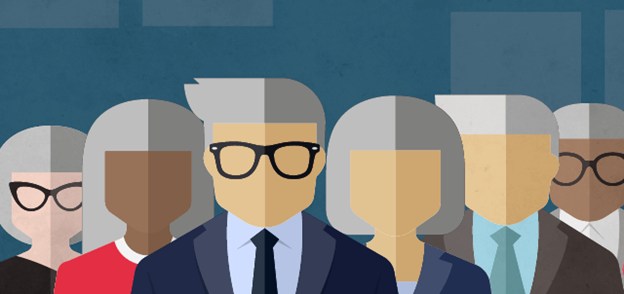
The United Nations Decade of Healthy Aging (2021–2030) is underway – the first global effort to help the rapidly growing population of older people stay healthy, independent, and productive not just into their 60s, but into their 80s, 90s and beyond. Yet for all its welcome efforts to combat ageism and create age-friendly environments, the UN’s Healthy Ageing Action Plan makes no mention of mental health.
This is a gap employers need to proactively address.
People are not just living longer, they are also working later in life. About one in four people 65 and over are now in the US workforce. Older workers will soon be the fastest growing segment of the workforce – a trend that will only gather momentum. The Global Coalition on Aging finds that the world’s 60+ population will be above 2 billion by 2050. Yet only 15% of businesses have developed plans for the aging population.
While “need the money” is a common reason for rising labor force participation among older people, an AARP study found that “enjoy the job or enjoy working” is almost as powerful a motivator. This is good news for employers looking to retain talent.
Thousands of companies are grappling with a tight labor market and record numbers of employees are leaving their jobs in the “Great Resignation”. Experienced workers are in high demand. Yet employers are often unprepared to address the unique needs of an older workforce.
While the mental health struggles of younger workers are well-documented, older employees face their own mental health challenges. According to the Mental Health Index by Total Brain, One Mind, and the National Alliance of Healthcare Purchaser Coalitions, workers aged 40-59 saw the highest increases in stress, anxiety and feelings of negativity from June to August in 2021.
What actions can employers take to support the mental health of the rising group of older workers? Three workplace intervention strategies can address older employees’ mental health and work ability.
Employers have an obligation to support their workers, no matter how young or old. The world’s population is aging, but workplace mental health support for older workers remains lacking. Older individuals represent a critical and growing segment of the workforce with their own unique perspective and set of needs. Keeping older workers mentally strong, healthy, and productive is increasingly essential to businesses everywhere. If businesses want to foster an inclusive, intergenerational workforce, it starts by investing in the mental health of all their workers.